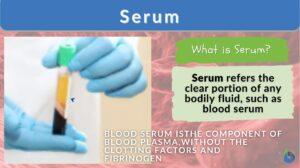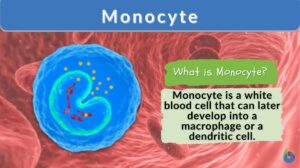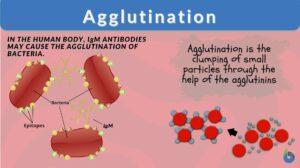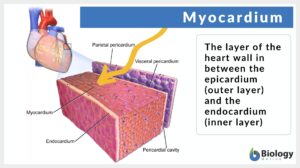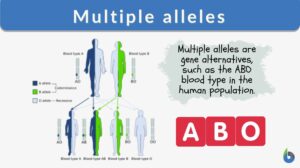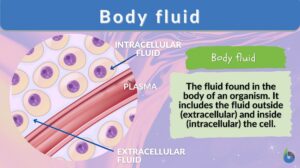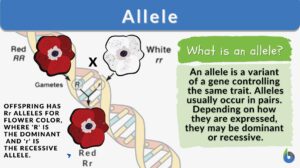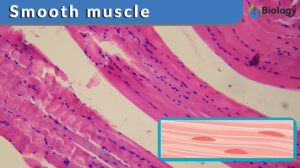Search Results for: blood
How High Sugar Level in Blood Damages the Blood Vessels
By Vicki Mozo Damage in the vasculature is common in individuals who have high sugar level in blood. It seems that an... Read More
White blood cell
Definition noun, plural: white blood cells Any of the nucleated blood cells that lack hemoglobin, with a primary role in the... Read More
Abo blood group
Abo blood group (Science: haematology) The major human blood type system which describes the oligosaccharide glycoprotein... Read More
Red blood cell
Definition noun, plural: red blood cells The blood cell containing hemoglobin and functions primarily to transport... Read More
Blood cell
Definition noun, plural: blood cells Any of the cells in blood, i.e. a red blood cell (erythrocyte) or a white blood cell... Read More
Circulation
Blood Blood is composed of a liquid, plasma, and blood cells such as erythrocytes (red blood cells,) leukocytes (white... Read More
Erythrocyte
Erythrocyte Definition Erythrocytes (red blood cells or RBCs) are the myeloid series of specialized cells that play an... Read More
Homeostasis
Homeostasis is the tendency not to stray from the range of favorable or ideal internal conditions. Such conditions must be... Read More
Blood vessel
Definition noun, plural: blood vessels Any of the vessels in cardiovascular system and functions by carrying blood... Read More
Blood volume
Definition noun The total amount of blood in the body; the sum of the plasma volume and erythrocyte volume; the volume of... Read More
Blood pressure
Blood pressure (Science: cardiology, physiology) The force that the circulating blood exerts on the walls of the... Read More
Blood clotting factor
Definition noun, plural: blood clotting factors Any of the many plasma components involved in blood clot... Read More
Semilunar valve
The human heart structure consists of heart chambers (2 atria and 2 ventricles) that differ functionally from each other.... Read More
Blood Vessels Hold Key To Thicker Hair Growth
MGH researchers have succeeded in growing hair faster and thicker in mice, thanks to a protein that promotes blood vessel... Read More
Leukocytosis
What Is Leukocytosis? Leukocytosis is a condition wherein the number of White Blood Cells (WBCs) is increased above the... Read More
Agglutination
Agglutination Definition What does agglutination mean? It generally refers to the process of sticking together or the... Read More
Blood-brain barrier
Definition noun A semipermeable membrane that serves as a selective barrier separating the circulating blood and the... Read More
First time! Human blood cell turned into a young sex cell
In essence, our body consists of two major types of cells – one group involved directly in reproducing sexually (called... Read More
Half blood
The term half blood is used to describe the relation between individuals that share descent from only one parent. In humans,... Read More
Respiration
Organization of the Respiratory System Each lung is composed of air sacs called alveoli - the sites of gas exchange with... Read More
Blood clot
Blood clot (Science: haematology) The conversion of blood from a liquid form to solid through the process of coagulation. a... Read More
Spongy bone
Spongy bone, also known as cancellous bone or trabecular bone, is a type of bone tissue found at the ends of long bones and... Read More
Myocardium
Myocardium Definition What is the myocardium of the heart? It is the muscular middle layer of the heart that is... Read More
Multiple alleles
Alleles are the pairs of genes occupying a specific spot called locus on a chromosome. Typically, there are only two alleles... Read More
Body fluid
Body Fluids Definition What is body fluid? Literally, body fluid is the fluid of the body. The adult human body is ~50-60%... Read More
Feedback mechanism
Feedback Mechanism Definition What is a feedback mechanism? A feedback mechanism is a physiological regulation system in a... Read More
Fibrinous exudate
What Is Fibrinous Exudate? Fibrinous exudate is a type of exudate (inflammatory fluid) that forms at the site of tissue... Read More
Simple squamous epithelium
Simple Squamous Epithelium Definition Simple squamous epithelium, also known as simple squamous epithelial tissue or... Read More
Smooth muscle
The smooth muscle can be described as a type of muscle in the human body that is non-striated and involuntary in action.... Read More
Cardiovascular system
Definition noun The organ system in which the blood is pumped through the heart and circulates throughout the body through... Read More
Plasma volume
Definition noun The total volume of the blood plasma in the circulatory system Supplement The blood is comprised of plasma... Read More
Codominance
Codominance Definition Codominance is a form of inheritance wherein the alleles of a gene pair in a heterozygote are fully... Read More







